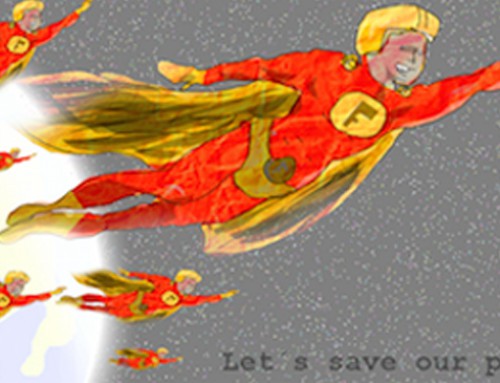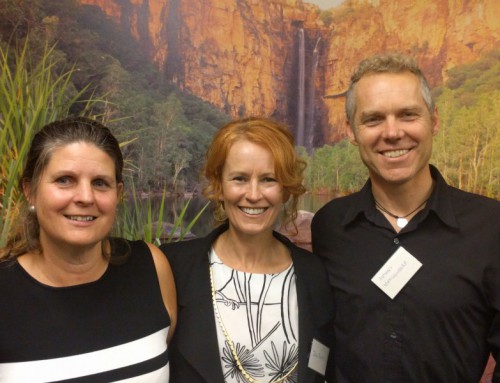Earth Overshoot Day lands on the 2nd of August this year. This marks the day where we will have used more from nature than our planet can renew in the whole year. We use more ecological resources and services than nature can regenerate through overfishing, overharvesting forests, and emitting more carbon dioxide into the atmosphere than forests can sequester. Each year, this date is falling earlier and earlier in the year.
We all know that we need to reverse this trend and we need to act quickly and seriously to stay below 2°C of warming to avoid many of the catastrophic impacts of climate change. Year after year we see little action taken by leaders and Big Business around the world. We still have time to act, but this time is running out. Experts have warned that we have 3 years left to take serious action on climate change to avoid these consequences.
So, what is the solution?
It seems that we are reminded almost on a daily basis that as consumers, it is our bad choices that have got us in the situation that we are in. It is our addiction to fast fashion, driving cars and eating meat that has warmed the planet. We are encouraged to make greener choices such as changing our lightbulbs, riding to work or becoming a vegetarian.
These actions have even been ranked by their effectiveness.
Most recently, a report suggested an action we can make that will outweigh nearly all other individual actions combined! The report suggested that if we truly want to lead a greener lifestyle, we should have fewer children, claiming one less child would save 58.6 tonnes of CO2-e per year.

Putting the focus on individual actions as the solution to climate change comes with a series of flaws. Many of the suggested actions require significant lifestyle changes and increased costs. If you are struggling to make ends meet, paying a premium for environmentally friendly products or certified green power is not feasible. Replacing your car with a bicycle or public transport is only possible if there is adequate cycling infrastructure or reliable public transport in place.
The argument goes that if everyone made these changes to their lifestyle, largescale benefits will be seen across the community. However, in reality, individual action on climate change is victim to what is known to economists as the tragedy of the commons. A situation in which people pursuing their own interests nevertheless act in ways that are collectively self-defeating.
For example, giving up meat is one of the most significant actions we can take as individuals to reduce our carbon footprint. However, there is no incentive to give up eating meat because not everyone is doing it and as an individual, we don’t experience any of the consequences of a higher carbon footprint from eating meat. Ultimately, however, we will all suffer the impacts of climate change from not reducing our carbon footprint.
The ultimate flaw of taking individual actions to solve the climate crisis is that all of the actions that we take to reduce our impact are negated by the actions (or lack thereof) of government and Big Business.
A recent report has found that just 100 companies are responsible for more than 70% of the world’s greenhouse gas emissions since 1988. While we are encouraged to green our individual lifestyles, Big Business is allowed to continue to pollute. For governments and authorities to be encouraging us to take these individual actions, while at the same time providing handouts to fossil fuel companies is completely contradictory.
In Australia, we have a government that is addicted to coal and we are facing the immediate threat of Adani’s proposed Carmichael coal mine on the traditional lands of the Wangan and Jagalingou people in central Queensland. If allowed to go ahead, it will be the largest coal mine in Australia and one of the largest in the world. This will cause devastating destruction to the land, water, climate, people’s health and the Great Barrier Reef.
Stopping Adani’s Carmichael coal mine will save an estimated 79 million tonnes of greenhouse gas emissions from entering the atmosphere each year. As individuals, we could rely on over 1 million people deciding to not have a child each year, keeping in mind the tragedy of the commons, or we can work together and take collective action to stop Adani.

Source: Facebook
Stopping Adani will set a precedent for no new coal mines in Australia. Something that must happen if we are to keep global temperatures below 2°C.
While we are told that as consumers, it is our choices that have got us where we are, we must remember that we are also citizens and as citizens, we have a strong voice.
If we are going to take meaningful and immediate action to solve the climate crisis, we need to stop acting as individuals and come together and take collective action. It is only mass movements that have the power to alter the trajectory of the climate crisis.
This means, for example:
- Joining an environmental organisation such as Friends of the Earth, AYCC or 350.org Australia, or engaging in a movement such as #stopadani.
- Having a conversation with your local MP and making sure that they are representing your interests.
- Joining sustainability committees and advocating for environmental decisions made at our work, schools and communities.
- Look at where your money and superannuation is invested and join the divestment movement. Is your bank/super fund investing in climate destruction?
It is important that as individuals we are conscious of how our choices and habits impact the environment. Taking individual action has excellent benefits, however it won’t be anywhere near enough to keep global temperatures below 2°C. History has shown us the power that mass movements can have and we are already seeing many of these impacts in the climate movement. By coming together as citizens, we all have the power to challenge the current unfair system and create a better future for all.

“850 incredible young people from communities all across this country have spent the weekend on the land of the Wurundjeri people learning about climate justice and getting fired up to make it happen. We’re ready to shift the power.”
Source: Australian Youth Climate Coalition
Original post on the Sustainability Hub – http://sustainability.ceres.org.au
By Nick Rickard, CERES Outreach Educator
References:
Climate Change and the Grim Logic of Collective Action – https://www.thestar.com/opinion/commentary/2015/12/20/climate-change-and-the-grim-logic-of-collective-action.html
The Case for Advocacy: Individual vs. Collective Action in the Environmental Movement – https://residenceonearth.net/2017/01/22/the-case-for-advocacy/
Climate Change: My Beef With the Collective Action Problem – https://www.thersa.org/discover/publications-and-articles/rsa-blogs/2014/01/climate-change-my-beef-with-the-collective-action-problem
Neoliberalism has conned us into fighting climate change as individuals – https://www.theguardian.com/environment/true-north/2017/jul/17/neoliberalism-has-conned-us-into-fighting-climate-change-as-individuals?CMP=share_btn_fb








Leave A Comment